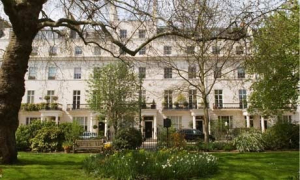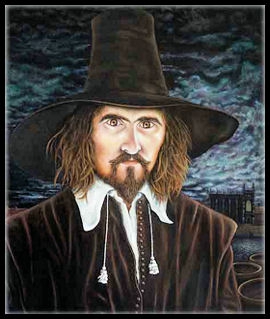The Pyros
Pyromancy is the school of Magic that gives the wielder control over fire and heat. It could be seen as a somewhat niche purview compared to things much more commonly encountered - the inescapable gas that surrounds Wytches at all times, the liquid that fills vast oceans that must be consumed routinely to survive, or the solid ground always beneath their feet - but the range of applications stretch beyond lighting a target up in flames, ranging from artistry to medicine, though of course for many Pyros enkindling is a way of life.
Information on the magic of Pyromancy itself can be found here.
Structure
It seems that after the breakdown of what once was, the Pyros are finally feeling ready to regain some sort of structure, especially in light of the Hammer's turn towards overt aggression. There are currently three very prominent figures in Pyromancer society, each with a sizeable following. About sixty-five percent of Pyros posess some sort of allegiance to these three, with the remainder either declining to get involved with any potential leader, or backing nobodies. This step towards unity is valuable for progress, but until there is one voice, they are a dangerously easy target for the renewed vigour of the Hammer.
The Phoenix Movement
With its catchy slogan “Rise from the ashes!”, Chester Ward's Phoenix Movement and its mantra of doing away with the old and starting anew has gained support easily by focusing on the potential for a bright future for all Pyros, though cynics would spin the movement as playing to the residual guilt felt by many over the misdeeds of their ancestors. Most of its members are youthful, confident and vary from discontent with, up to hostile to, the status quo. Chester, an exemplar of these traits, spends most of his time with members, offering advice and encouragement, but quickly dispenses with pleasantries when challenged. Fiercely proud of his magical prowess and his ideals, he and his followers will defend them to the hilt.
The House of Ashen
 Hailed by many as a modern-day Merlin, few would ever voice doubts that Benjamin John Ashen wielded the power to change the world. Known by almost all for his presence and unusual levels of influence across all five schools of magic, he has managed a lifetime's worth of achievements by a remarkably young age. Many fear his power, but nobody is foolish enough not to respect him. It was not at all surprising that he would be put forward as a champion of the Pyromancers as a figure that could lead them back to glory. He tends to keep his followers at a distance - he collaborates and researches with them gladly, appreciative of the opportunities this following has afforded him, but he invites almost nobody into his social circles, much to the frustration of the those who have tried and failed to get close to him. This, and his seeming fondness for being in the public eye, has led him to be a favourite target of gossip, with the loose tongued both complaining about how snobbish and aloof he is, yet listing him first whenever the eligible bachelors of the magic community are brought up.
Hailed by many as a modern-day Merlin, few would ever voice doubts that Benjamin John Ashen wielded the power to change the world. Known by almost all for his presence and unusual levels of influence across all five schools of magic, he has managed a lifetime's worth of achievements by a remarkably young age. Many fear his power, but nobody is foolish enough not to respect him. It was not at all surprising that he would be put forward as a champion of the Pyromancers as a figure that could lead them back to glory. He tends to keep his followers at a distance - he collaborates and researches with them gladly, appreciative of the opportunities this following has afforded him, but he invites almost nobody into his social circles, much to the frustration of the those who have tried and failed to get close to him. This, and his seeming fondness for being in the public eye, has led him to be a favourite target of gossip, with the loose tongued both complaining about how snobbish and aloof he is, yet listing him first whenever the eligible bachelors of the magic community are brought up.
The Croft Institute
Professor Susan K. Croft is head of a research institute that she started just over 30 years ago, officially named the “York Institute for Advanced Research Into Pyromancy”, but referred to commonly as the Croft Institute, as that's what's written on the door1). She is a subdued, aged woman who is as much a friend to her fellow researchers as an employer. Whilst the young Pyromancers scurry away with their radical ideas and fancy talk, she goes to work Monday to Saturday, 9 to 7, chiselling away at the monolith of our ignorance of understanding. She does not ask for fame or riches, and that's why many wish to see her at the helm of a united society of Pyromancers - often those most fit to lead are those who never seek it out. Those much younger than her dismiss her as an irrelevant, soft-touch has-been, but those who consider themselves mellower and wiser see a proven, thoughtful invididual as a better way to a peaceful, productive future than an arrogant Wytch barely past their teens with a hair-trigger temper.
Attitude to Outsiders
The Pyros view Wytches of all elements on a roughly even field, their opinions being swayed much more by how powerful and accomplished any individual or group is rather than what school of magic they study. There are many Pyros with ties to the Magic Sphere and Bedivere Hall in particular, and there would likely be members of the Heritage Trust were it not for the general dislike of the Pyros harboured by the Geomancers, and likewise there are members of other schools who choose to pass their time in Pyro-centric social circles. If a Pyro were to turn their nose up at a fellow Wytch, it would likely be the isolationist, country-dwelling Islander weirdoes. The opinion is generally held that most of the “important” Hydromancers are already in contact and collaborating with the Pyros.
If someone who didn't wield fire magic wished to call themselves a Pyro, they would be free to do so, though depending on the closeness of their ties to important figures and involvement with social groups, they may be mocked for their claim. Perhaps the most surefire way of being “a Pyro” would be to join the Phoenix Movement, the Croft Institute or become embroiled with the House of Ashen.
Others of Note
 A new chain of nightclubs called Firebrand2) has opened in major UK cities about a year ago, and are steadily becoming hot venues. They host monthly “VIP nights”, with what at first glance seems to be a very exclusive guest list. It's been well publicised within the magical community that these nights are for wytches only, and in addition to the usual selection of alcoholic drinks, there are also a wide variety of potions on sale. It's not public who owns this chain due to what happens to most of Mr. Jordan Havenbrook's competitors.
A new chain of nightclubs called Firebrand2) has opened in major UK cities about a year ago, and are steadily becoming hot venues. They host monthly “VIP nights”, with what at first glance seems to be a very exclusive guest list. It's been well publicised within the magical community that these nights are for wytches only, and in addition to the usual selection of alcoholic drinks, there are also a wide variety of potions on sale. It's not public who owns this chain due to what happens to most of Mr. Jordan Havenbrook's competitors.
History
It's rumoured that there was once a well-structured organisation of Pyromancers, from very early times leading up to the 1600s, though few written records of it exist. Little is known about what the organisation did, its name3) or what its goals were, although their achievements seem to be mostly militaristic. Most weapons of war pertaining to fire were thought to have come from them, including flaming arrows circa 700 BC, “Greek fire” in the 7th century, and the early gunpowder based weaponry from the mid 14th century. That these are falsely attributed to other countries is no surprise - history is written by the winners of wars, and whilst Britain's magical community had always led the field, the small island's military might had been unable to keep up, though these discoveries allowed Britain to punch far above its weight in early conflicts.
Early History
One of the few well documented periods of its history was its involvement with the Romans and their excellent historians. The Roman invasion and subsequent formation of Britain in the middle of the first century, and the subsequent founding of Londinium, gave the organisation a focal point, and within a decade London had become the centre of activity for the fire mages. This was encouraged by the Romans, who saw this magic as a way to further expand their empire. The new technology the Romans brought with them and the developing magic of the Wytches were a good match, the then small community blossoming as a result of the power, riches and freedom afforded to them by the invading forces. Once they learned that there were only certain individuals who could ever harness this mysterious power as it could not be taught, only granted by birthright, it was seen to that every Roman soldier would travel to Britain at some point, and those with the talent would be trained to wield it. There is no question that the relationship was even more beneficial for the Romans as it was for the Pyros, as the empire hit its peak in 117 AD, only 60 years after the partnership began. The empire would doubtless have continued to expand, were it not for the death of Emperor Trajan after his 20 year reign. His replacement, Hadrian, was distrustful of the Wytches his adoptive father was so fond of, and ceased the practice that had proved so successful. The decline of the empire after this was inevitable, but the organisation only gained further - freed now from their obligations to the Romans yet left with their rewards.
One must go forward a long time to find the next written record - that of the Viking marauders around the eighth and ninth centuries. They speak of men and women in crimson robes, who greeted raiders with butts of flames in which they saw Loki as an old woman, who spoke of Ragnarok and instructed them to leave peacefully4). As a result of this and other similar happenings, the organisation survived unscathed through most of history. It certainly knew how to protect itself and the people of London from the occasional hostilities that came their way, and throughout the rest of the middle ages there was a quiet symbiosis between the Norms and the Pyros.
The Rogue Wytch
It is surprising, perhaps, that this organisation that managed to span more than two millenia disappeared almost without a trace. Again, the specifics of its downfall have disappeared into the mists of time, but this time the outline is much clearer. It's no coincidence that the disappearance occurred during the Witch Trials - in fact, the causality between these two things is rather counterintuitive. It's theorised that through the actions of one powerful rogue Pyromancer whose name history has mercifully managed to forget, countless lives and livelihoods were destroyed in an uncontrollable blaze in his bid for power. It's likely that there were individuals like him before who used their powers for evil, but as is so often said, all it takes for evil to triumph is for good men to do nothing. So focused was the Pyro community on further expanding the development of artillery and weapons of war that the rogue Wytch was left unchecked for just long enough. His reign of fire and terror was said to last only eight days, but a town in the midlands and much of the surrounding countryside burned to ashes by that point, so badly damaged that no trace of it remains, replaced only by grass and forest. It was only then that the common people, betrayed by their supposed protectors as they saw it, began the Witch Trials, and the Pyros were faced with a choice - succumb to their demands, or fight back.
During the Witch Trials themselves, very few Pyros died by burning - they could too easily manipulate the flames to do no harm to them, and appear, using smoke and ashes, that they had burned to death, only to clamber from beneath a pile of bodies or dig out of a shallow grave hours later. The other schools of magic were not so lucky though, and those unlucky enough to be caught died at the hands of the Witchfinders. As the Pyros were seen to cause the trials, and suffered the least from it, this understandably made them hugely unpopular within the wider Wytch community. Magic was forced underground, but for now, the society continued.
The Collapse
 Towards the end of the Witch trials, Guido Fawkes, a Pyromancer who was tired of hiding and wished to take over the British government by force to allow his friends and colleagues to be free of oppression, had plotted to destroy the Houses of Parliament using fire magic - the infamous “Gunpowder Plot”5) - and though few were directly involved, it is thought that about half of the organisation supported him secretly or openly. The other half, who still felt guilty for the suffering one of their own had caused, conspired to not only foil this plot, but in doing so to create a schism within the organisation so large it would lead to its total collapse. The thinking behind this is believed to be that without a unifying purpose, the dangerous research that had inadvertently aided the destruction that took place would be hampered, and whatever shards of the organisation were left would distrust each other to the point of constant vigilance, ensuring that through paranoia and fear, there could never be a repeat of what happened. It was far from a happy ending, but they had decided it was the way it had to be.
Towards the end of the Witch trials, Guido Fawkes, a Pyromancer who was tired of hiding and wished to take over the British government by force to allow his friends and colleagues to be free of oppression, had plotted to destroy the Houses of Parliament using fire magic - the infamous “Gunpowder Plot”5) - and though few were directly involved, it is thought that about half of the organisation supported him secretly or openly. The other half, who still felt guilty for the suffering one of their own had caused, conspired to not only foil this plot, but in doing so to create a schism within the organisation so large it would lead to its total collapse. The thinking behind this is believed to be that without a unifying purpose, the dangerous research that had inadvertently aided the destruction that took place would be hampered, and whatever shards of the organisation were left would distrust each other to the point of constant vigilance, ensuring that through paranoia and fear, there could never be a repeat of what happened. It was far from a happy ending, but they had decided it was the way it had to be.
Their plan was successful, and the organisation ripped itself apart from the inside, leaving the community in a rather sorry state - families of Pyromancers dotted around London and the other cities with no unification or common purpose, though in recent times the fear and mistrust has largely died out and potential leaders have started to emerge, rallying to regain the former glory the Pyros once held.
